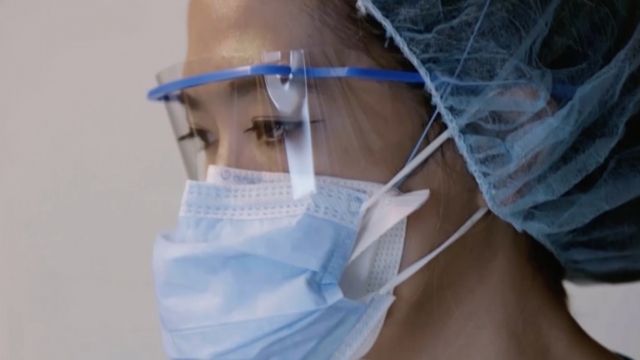At the height of the pandemic, nurses played a huge part in saving lives, but some — especially Filipino nurses — couldn't save their own.
Filipino nurses make up 4.5% of the nursing population but account for 25% of COVID deaths.
"A number of us are able to stay at home, we are able to shelter in place and work at home. But Filipino nurses who are working on the front lines in this country don't have that privilege," said Catherine Ceniza Choy, a historian who has studied Filipino nurses and author of "The Empire of Care." "One of the things that we can do is learn about their presence, learn about their history and the historical contributions they have made to American health care."
The Philippines was an American colony for 48 years until 1946, and Americans implemented nursing schools throughout the islands in the 1900s to "civilize" its people.
During World War II, American soldiers relied on the Philippines as a medical hub in Asia. Since then, a steady stream of Filipino nurses has made the journey to American shores.
SEE MORE: AAPI Equal Pay Day: Studies show Asian women lag behind
In her film "Nurse Unseen," director Michele Josue spotlights the role of Filipino nurses in America and the rich history of these first responders.
"A lot of this project was me just really coming to terms with my Filipino identity, seeing how my personal family history was rooted in all this broader history," Josue said. "I realized it was a much more emotional project than I had anticipated. And we deal with a lot of difficult and challenging themes, such as the mental health of our health care workers and how a lot of them were experiencing burnout on the front line."
In the film, Josue shows the struggle some Filipino nurses still feel post-pandemic.
"Our Filipino health care workers are still experiencing residual emotional impact from the pandemic, and it's not over for them," Josue said.
One of the New York City nurses she spoke to for the documentary attempted suicide due to burnout.
"He survived, but that's just an example of how tough the job was for some of these nurses," Josue said.
In her film, Josue gives a nod to Filipino medical professionals of the past, present and future, saying it's more than a stereotype.
"I always took that for granted," she said. "I didn't understand why. I didn't understand that there was this incredible, incredibly nuanced history behind that stereotype. For all of those people, either considering being a nurse or being pressured into being a nurse, know that they're so much more than this stereotype, this generalization, that there's a rich and layered legacy to be proud of."
Trending stories at Scrippsnews.com



